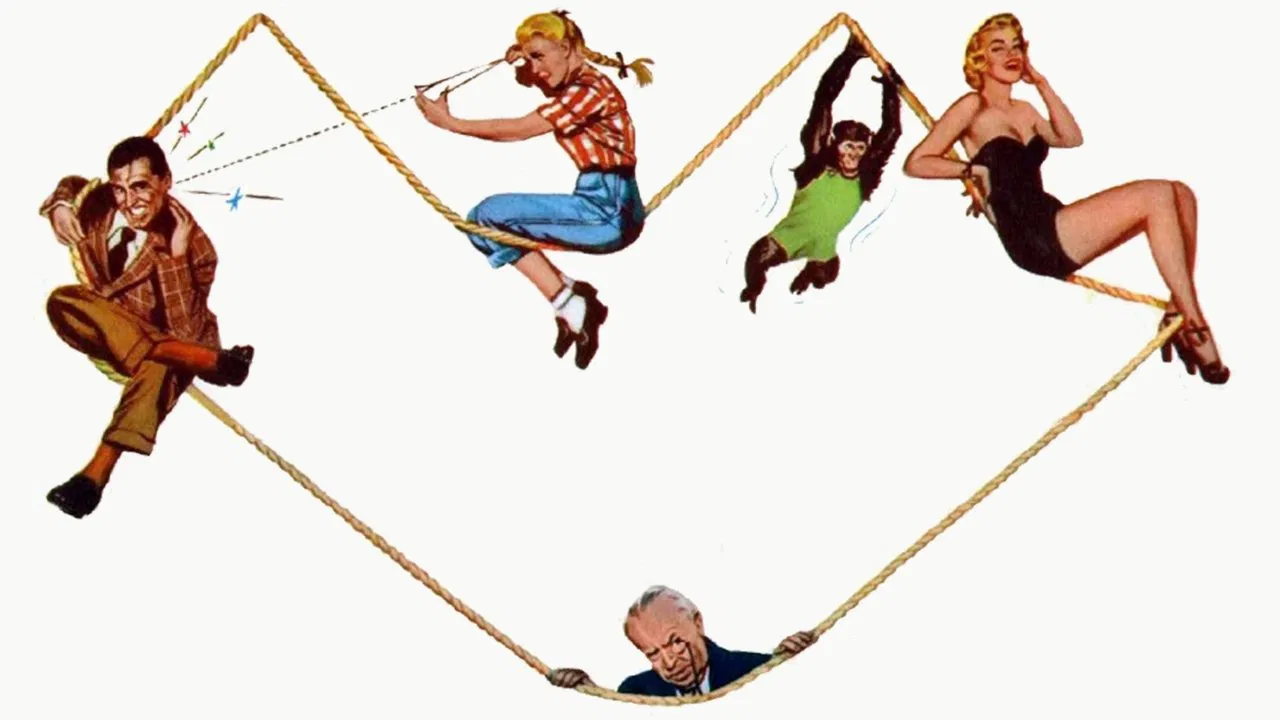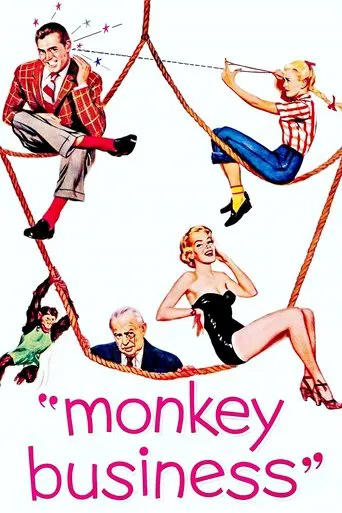

'Monkey Business' is typical Howard Hawks' screwball comedy that unfortunately starts to show it's age. When it comes to slapstick comedy then Howard Hawks is one of the finest in that genre, but 'Monkey Business' might not be his greatest anymore, especially compared to 'His Girl Friday' which is maintained it's wit and sharpness besides all the slapstick, and compared to 'Bringing Up Baby' it feels too repetitive. Cary Grant is typically charming and his comedic timing is spot on. Together with Ginger Rogers, whose transitions into teenage girl were just adorable, these two compose a lovely couple whose adventures you follow on the edge of your seat.With other two movies I mentioned 'Monkey Business' offers many chuckles and laugh and guaranteed cure for depression.
... View MoreIt's worth seeing even for those only a few seconds from the 14th minute, when Marilyn shows us the most beautiful ass in the world, through the dress she has on her, going out of her boss's office, just two minutes after she showed Cary Grant one of her super sexy legs, in the front room of the office. If you're not happy with what you've just been seen, wait until the 31st minute, when you'll see her laughing in the sport car driven by the same but transformed Cary Grant. Have you reached the 33rd minute? Marilyn in a swimsuit? What do you say? Don't you want to stop time forever? Or, at least to be born again, beside her, at the swimming pool? Well, that's what it is, you have to be thankful with just that, the rest they try very hard, in a childish way, to make us laugh. They did not succeed, not with me. But I will watch it again, anytime, only for MM.
... View MoreCary Grant gets my vote as the best American actor of all time. And, the only real reason to watch this film is to see Cary Grant be silly (and nobody can be quite so silly as Cary Grant on those rare occasions when he does that). But this film...sorry, I think it ranks among the worst Cary Grant films.The first problem is Marilyn Monroe. At least she is accurately typecast in this film as a dumb blonde with no talent other than her looks. In fact, the lead chimp gives a more credible performance and is more entertaining.The second problem is that even Cary Grant (and Ginger Rogers) acting childish gets tired after a while...and when it does get tiring, there's little of substance left.SPOILER ALERT: The third problem is the plot. It's pretty thin: scientist may have discovered a youth potion...although it turns out the chimp invented the formula.I should have really liked this film. It has my favorite actor (Grant), and a female lead that I have come to like (Rogers), and one of my very favorite supporting actors (Charles Coburn). But it's a great disappointment from beginning (the director, off screen, telling Cary Grant that it's not time to come on the set yet) to the end.Well, nobody perfect. Not Cary Grant. And not the great director Howard Hawks. Sorry Cary, you get a rare "5" on this one.
... View MoreNo, it's not the Marx Brothers in 1931. It's Cary Grant and Ginger Rogers, and they are headlining a 20th Century Fox motion picture directed by Howard Hawks (one of many that Grant and Hawks made together). In true Hawksian fashion, the keyword is 'screwball.' That means one absurd moment gets piled on top of the next. Until all of a sudden, all heck breaks loose and a comic free-for-all ensues. In this picture, the leads play a couple that seem to be growing old as well as growing young together thanks to a rejuvenation serum. There is an uproarious sequence where Miss Rogers thinks Mr. Grant has become a baby. Charles Coburn costars as the meddling boss, and Marilyn Monroe is the secretary who must find someone who can type his correspondence. (Coburn and Monroe would re-team later in Gentlemen Prefer Blondes, continuing their version of a perversely funny couple.)Careful, there's a banana peel on the floor...
... View More